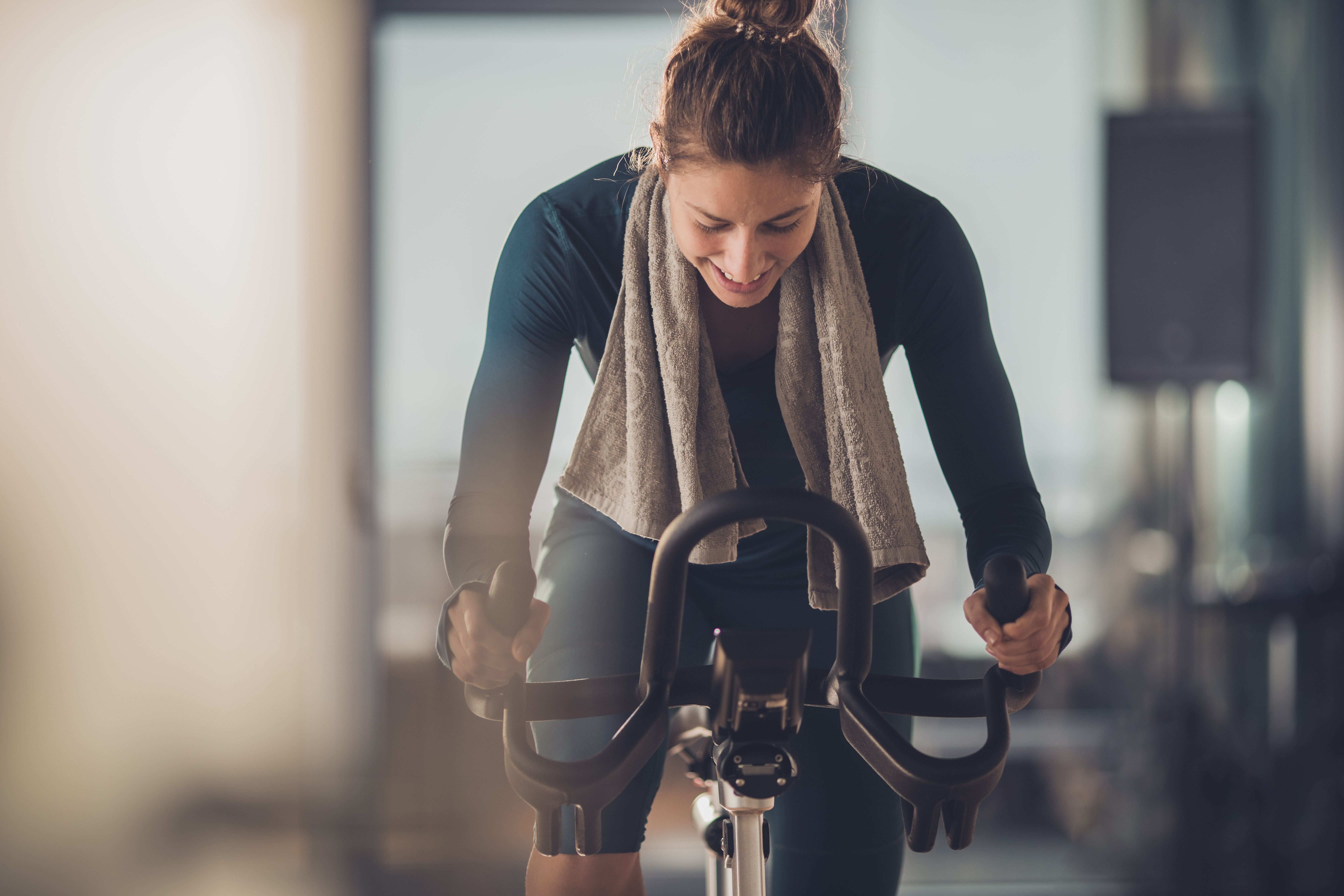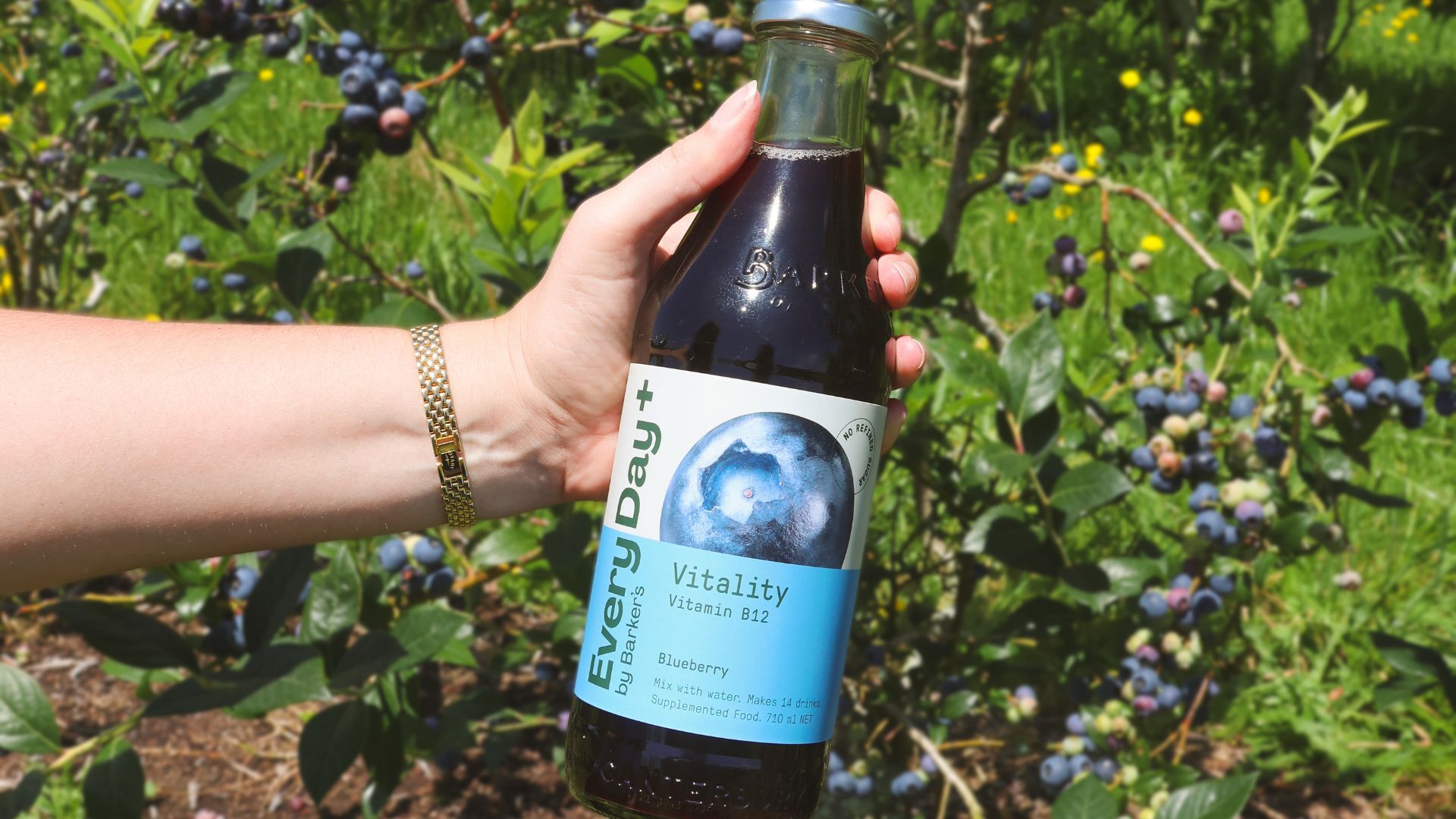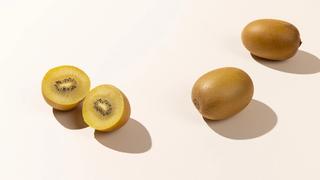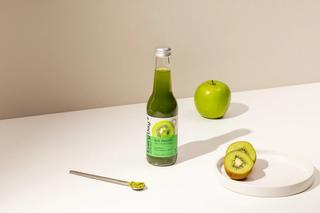Blackcurrants for Sports Performance
2025-07-01

As the saying goes, “everything in moderation”. Exercise is crucial to our health, but too much exhaustive exercise increases free radical production. Free radicals break down your cells over time. The imbalance of free radicals and not enough antioxidants is known as oxidative stress.
The level of oxidative stress and associated muscle damage depends on both exercise intensity and on the exhaustion of the person exercising. Training and antioxidant treatment can work together to help prevent the exhaustion leading to oxidative stress (Viña et al., 2000).
New Zealand Blackcurrants
We use New Zealand Blackcurrants to make our EveryDay+ Immunity Daily Shots and Syrups. NZ-grown blackcurrants in particular contain a high concentration of the antioxidant, anthocyanins.
Anthocyanins are known for protecting against oxidative stress and reducing inflammation (Kumar, Goel, & Phenolic, 2020). They are found in red and purple berries, like NZ Blackcurrants. They’re also in grapes, apples, plums, cabbage, and other foods high in natural colorants (Mattioli, Francioso, Mosca, & Silva, 2020).
The combination of New Zealand’s unpolluted air, ultraviolet light intensity, and specially bred varieties results in these blackcurrants having some of the highest anthocyanin concentrations in the world. According to the New Zealand Institute of Plant and Food Research, New Zealand Blackcurrants appear to have about 1.5 times more Anthocyanin capacity than blackcurrants from North America (Schrage et al., 2010).
Research is indicating that New Zealand blackcurrants are beneficial for endurance athletes wanting to improve their training and performance due to their anti-inflammatory properties.

Study 1: Cycling performance
A 2015 study performed by Matthew Cook, Stephen Myers, Mandy Gault, Mark Willems from the University of Chichester found that the endurance significantly improved in competitive cyclists who had consumed blackcurrant powder for 7 days compared to the placebo. They studied 13 male cyclists who typically trained about 8 to 10 hours a week.
Athletes taking blackcurrant powder had 13–27% lower levels of lactic acid during exercise. Additionally, significant lactic acid build up occurred at a 6% higher intensity, meaning they could push harder before fatigue set in (Willems, Myers, Gault, & Cook, 2015).
Study 2: Sport Climbing Performance
Another study by Willems and researchers from the Institute of Sport at the University of Chichester, UK published in 2019 investigated the impact of NZ blackcurrant extract supplementation for 7 days prior on climbing performance and physiological responses in 18 active male sport climbers. The NZ blackcurrant extract led to a significant 23% improvement in total climbing time across the three bouts compared to an 11% decrease with placebo (Potter et al., 2020).
Study 3: High-intensity intermittent running performance
Willems and other researched a study more recently, published in 2024, this time looking at the repeated effect of NZ Blackcurrant extract on high-intensity intermittent running (HIIR) performance (Perkins, Blacker, & Willems, 2024).
The study had participants perform two separate running tests after taking the extract to test if participants showed a consistent performance improvement across multiple trials, indicating reliability of the supplement.
On average, NZ Blackcurrant extract supplementation led to a 7.9% increase in total running distance and an 8.0% increase in high-intensity running distance compared to placebo. On an individual participant level, 8 of the 16 participants enhanced in both trials, experiencing increases of approximately 16.7% in total running distance and 16.6% in high-intensity running distance (Perkins, Blacker, & Willems, 2024).
The study concluded that NZ Blackcurrant extract can substantially enhance performance in the individuals who respond consistently to it. However, further research is needed to identify the factors that influence responsiveness (Perkins, Blacker, & Willems, 2024).
Summary
Whether you're an Olympian or you exercise for your general health and wellbeing, Blackcurrants could help you perform at your best thanks to their high levels of anthocyanins.
References
- Cook, M., Myers, S., Blacker, S., & Willems, M. (2017, April 20). Is New Zealand blackcurrant a new ergogenic aid in sport? CurraNZ. https://curranz.co.nz/blogs/news/is-new-zealand-blackcurrant-a-new-ergogenic-aid-in-sport
- Kumar, N., Goel, N., & Phenolic, P. (2020). The therapeutic potential of anthocyanins: Current approaches based on their molecular mechanism of action. Frontiers in Pharmacology, 11, 1307. https://doi.org/10.3389/fphar.2020.01307
- Mattioli, R., Francioso, A., Mosca, L., & Silva, P. (2020). Anthocyanins: A comprehensive review of their chemical properties and health effects on cardiovascular and neurodegenerative diseases. Molecules, 25(17), 3809. https://doi.org/10.3390/molecules25173809
- Perkins, I. C., Blacker, S. D., & Willems, M. E. T. (2024). Individual responses to repeated dosing with anthocyanin-rich New Zealand blackcurrant extract during high-intensity intermittent treadmill running in active males. Nutrients, 16(24), 4253. https://doi.org/10.3390/nu16244253
- Potter, J. A., Hodgson, C. I., Broadhurst, M., Howell, L., Gilbert, J., Willems, M. E. T., & Perkins, I. C. (2020). Effects of New Zealand blackcurrant extract on sport climbing performance. European Journal of Applied Physiology, 120(1), 93–103. https://doi.org/10.1007/s00421-019-04197-z
- Schrage, B., Stevenson, D., Wells, R. W., Lyall, K., Holmes, S., Deng, D., & Hurst, R. D. (2010). Evaluating the health benefits of fruits for physical fitness: A research platform. Journal of Berry Research, 1(1), 35–44. https://doi.org/10.3233/BR-2010-004
- Viña, J., Gomez-Cabrera, M. C., Lloret, A., Marquez, R., Miñana, J. B., Pallardó, F. V., & Sastre, J. (2000). Free radicals in exhaustive physical exercise: Mechanism of production, and protection by antioxidants. IUBMB Life, 50(4–5), 271–277. https://doi.org/10.1080/713803729
- Willems, M. E. T., Myers, S. D., Gault, M. L., & Cook, M. D. (2015). Beneficial physiological effects with blackcurrant intake in endurance athletes. International Journal of Sport Nutrition and Exercise Metabolism, 25(4), 367–374. https://doi.org/10.1123/ijsnem.2014-0233
Please note, EveryDay+ products are intended to complement a healthy lifestyle and are not a substitute for medical treatments or supplements. While we provide general tips and information on our blog, we recommend consulting a healthcare professional for personalised advice.
Related Posts

We love blueberries at EveryDay+ and use them in a few of our products for their...
Read more >
Warmer days, shorter nights - summer is the season for spritzes, sunshine and so...
Read more >
Dietary Fibre is a carbohydrate, mainly found in plant foods such as fruits, veg...
Read more >
Introducing our two new products specially formulated for gut health – a Raspber...
Read more >



